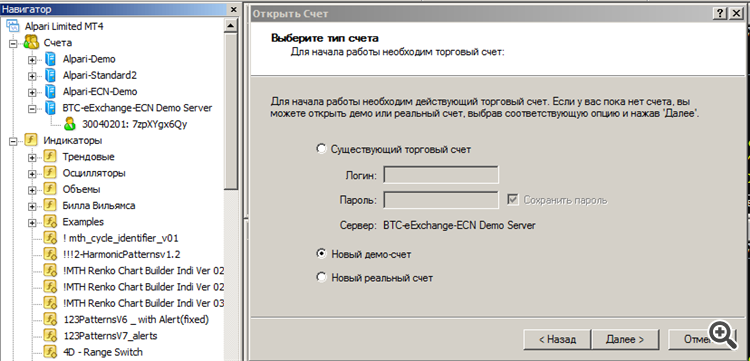Fehler, Irrtümer, Fragen - Seite 1834
Sie verpassen Handelsmöglichkeiten:
- Freie Handelsapplikationen
- Über 8.000 Signale zum Kopieren
- Wirtschaftsnachrichten für die Lage an den Finanzmärkte
Registrierung
Einloggen
Sie stimmen der Website-Richtlinie und den Nutzungsbedingungen zu.
Wenn Sie kein Benutzerkonto haben, registrieren Sie sich
Vielleicht ist das schon geschehen, aber ich möchte fragen:
Warum istPOSITION_COMMISSION nicht hervorgehoben und steht nicht in der Hilfe?
Diese Konstante ist nicht mehr relevant, aber leider können wir sie nicht verwerfen. Deshalb ist sie im Compiler nicht beleuchtet.
Ich sehe darin keinen Widerspruch.
Im Widerspruch zu was?
Ich habe einen negativen Saldo im Prüfgerät angezeigt. Außerdem ging das Eigenkapital unter Null. Ich muss annehmen, dass es ein Fehler ist.
Ich verstehe nichts, MT5 Version 1545. In früheren Versionen gab es Funktionen im Math.mqh-Verzeichnis:
Ich habe in anderen Mathe-Verzeichnissen nachgesehen, aber auch dort habe ich diese Funktionen nicht gefunden.
Wurden sie überhaupt entfernt oder wurden sie versehentlich gelöscht?
Überprüft bis zur Version 1554 von MT5, gleiche Geschichte, diese Funktionen sind nicht mehr da
Wozu braucht man sie, wenn man alle mathematischen Funktionen zur Verfügung hat?
Bevor Sie antworten, vergleichen Sie sie mit denen, die ich in der Liste aufgeführt habe. Übrigens sind diese Funktionen in der Hilfe der Standardbibliothek aufgeführt, so dass es wahrscheinlicher ist, dass jemand sie versehentlich gelöscht hat.
Bevor Sie antworten, vergleichen Sie sie mit denen, die ich in der Liste aufgeführt habe. Übrigens sind diese Funktionen in der Hilfe der Standardbibliothek aufgeführt, so dass es wahrscheinlicher ist, dass jemand sie versehentlich gelöscht hat.
Die Antwort von servicedesk, Datenfunktionen aus der Standardbibliothek wurden absichtlich entfernt, das Problem ist behoben. Auch die Hilfe sollte in Einklang gebracht werden, denn manchmal wird Zeit mit der Suche nach etwas verschwendet, das nicht mehr in der Funktionalität enthalten ist.
Wie kann das sein? Ich eröffne ein Demokonto auf einem Server der Firma btc-e.com, aber es öffnet sich auf einem ganz anderen Server einer anderen Firma!
